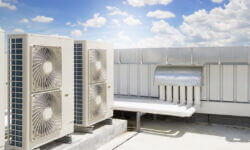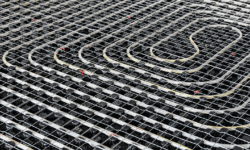If you’re a commercial property owner or if you’re a businessperson who leases commercial property, you have to deal with maintaining the building’s HVAC system. Who should pay for this regular and necessary maintenance – the property owner or the tenant?
Read more →Getting rid of dust is a constant problem for all commercial properties. To ensure acceptable air quality and cleanliness for your properties, you need to institute a detailed dust prevention and removal routine. It’s easy enough to do when you remove dust regularly.
Read more →After being partially or fully closed for the past year, school buildings across the country are opening up full-time for students in all grades. What can your school do to keep kids healthy and safe – not just from COVID-19, but from all manner of airborne germs? It’s all about working with your HVAC system.
Read more →Just as it’s important to clean the dust off surfaces, use hand sanitizer, and disinfect commonly used areas, it’s also important to clean, sanitize, and disinfect a facility’s HVAC system. The question is, which of these methods should you use for your building? They may all be necessary.
Read more →A properly functioning commercial HVAC system makes for a comfortable workplace, but the benefits don’t end there. An efficient HVAC system can lead to healthier employees, less environmental impact, and savings. Every part of a commercial HVAC system is important for functionality, all the way down to the tape used to seal the ductwork. It’s worth taking the time to understand what makes for good HVAC tape. Is your HVAC tape doing the job?
Read more →The Importance of Air Quality in the Classroom As students return to school hallways and education returns to normal, new indoor air quality (IAQ) considerations will apply. In a world of heightened safety concerns, schools will need to take precautions to ensure a healthy indoor climate. IAQ
Read more →It’s zero degrees—and the heat just went out. Suddenly, workers are contending with freezing temperatures while trying to do their jobs. For the HVAC professional who has experienced this situation, they understand that the job cannot be finished fast enough. That is why we have put together some of our favorite HVAC forums. These help technicians stay on top of their game. And are a great resource for troubleshooting those not-so-common issues.
Read more →Energy remains one of the major overheads for commercial properties and buildings. According to the U.S. Energy Information Administration (EIA) in 2019, space heating accounted for about 38% of delivered energy in the building sector. Therefore, regularly reviewing your building’s HVAC efficiency can help save on costs and reduce operational overhead. Not to mention, investing in energy-efficient HVAC will also help fight climate change, create a sustainable future, and improve the building’s IAQ.
Read more →According to the Centers for Disease Control and Prevention (CDC), HVAC systems present a significant risk of COVID-19 exposure to workers in office buildings. Therefore, in order to protect staff, reduce costs, and improve the indoor climate, it’s time to start planning how to improve your system over the coming year. Here are the top five New Year’s resolutions you should set for your commercial building’s HVAC system.
Read more →Maintaining a comfortable indoor climate in commercial buildings is an overhead most operators and owners need to revisit often. According to the U.S. Department of Energy (DoE), radiant heating is a good option compared to other heating systems like forced-air and baseboard heating. If you’re considering the benefits of radiant heating for your commercial property, take a moment to review some important facts.
Read more →









